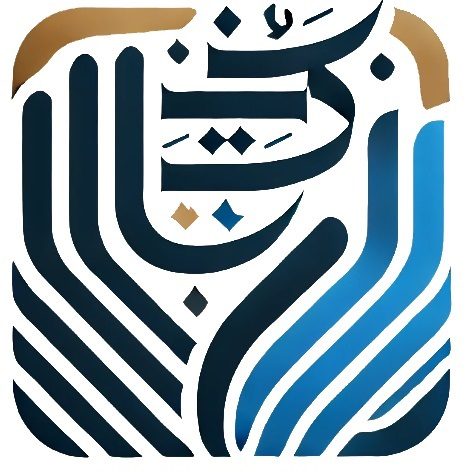Call for Papers
The 2nd Workshop on NLP for Languages Using Arabic Script (AbjadNLP 2026)
Rabat, Morocco (in-person)
Co-located with The 19th Conference of the European Chapter of the Association for Computational Linguistics (EACL 2026)
📘 Previous proceedings of AbjadNLP 2025 can be found at: https://aclanthology.org/volumes/2025.abjadnlp-1/
Overview
AbjadNLP focuses on advancing Natural Language Processing (NLP) for the Arabic language, its many dialects, and the broad family of languages that use the Arabic script.
Building on the success of AbjadNLP 2025 at COLING in Abu Dhabi, the 2026 edition will be held in Rabat, Morocco, co-located with EACL 2026. The workshop is now officially part of SIGARAB — the ACL Special Interest Group on Arabic NLP — reinforcing our long-term commitment to community-driven research and capacity building for Arabic-script languages. We also work closely with the Masakhane NLP community in Africa, with organisers from both initiatives actively collaborating.
At its core, AbjadNLP provides a platform for cutting-edge research in Arabic NLP, encompassing Modern Standard Arabic, Classical Arabic, and Arabic dialects, while also encouraging work on Abjad and Ajami languages that employ Arabic, Perso-Arabic, and other script variations. These include Persian (Farsi), Urdu, Pashto, Kurdish (Sorani and Kurmanji), Azeri Turkish, Ottoman Turkish, Sindhi, and Uyghur, as well as African Ajami languages such as Hausa, Fula, Wolofal, Swahili, Kanuri, Mandingo, and Tamazight (Berber).
Together, these languages represent nearly one billion speakers across the Middle East, Africa, and Asia — a vast linguistic community that remains underrepresented in computational research. AbjadNLP seeks to bridge this gap by promoting inclusive, resource-driven, and culturally aware NLP that empowers both Arabic and non-Arabic languages written in the Arabic script.
Topics of Interest
We invite submissions on all aspects of NLP for Arabic-script languages, broadly defined to include Arabic and its dialects, Perso-Arabic languages, and Ajami traditions across Africa and Asia. Areas of interest include, but are not limited to:
- Core Technologies: Morphological analysis, tokenisation, tagging, parsing, named entity recognition, sentiment and emotion analysis, and adaptation or fine-tuning of large language models (LLMs) for low-resource contexts.
- Applications: Machine translation, speech recognition and synthesis, OCR and handwriting recognition, assistive technologies, question answering, and social media or conversational AI analysis.
- Resources and Tools: Corpora (monolingual, parallel, and multimodal), lexicons, orthography and script documentation, text input methods, spelling and grammar checkers, and open-access datasets for low-resource and marginalised languages.
- Cultural and Sociolinguistic Dimensions: Transliteration and orthographic variation, code-switching, dialect variation, cultural context in NLP, and preservation of linguistic heritage for minority and indigenous communities.
- Interdisciplinary and Emerging Areas: NLP for education, health, finance, legal, and cultural heritage; ethical considerations in multilingual NLP; and fairness, transparency, and inclusivity in model evaluation.
Submission Format and Guidelines
AbjadNLP 2026 follows the EACL 2026 standards for submission format, review process, and ethical guidelines. All submissions must comply with the requirements in the official EACL 2026 Call for Papers.
We adhere to the following policies:
- Anonymous submissions: All papers must be fully anonymised for double-blind review.
- ACL Rolling Review (ARR): Authors may submit papers directly to the workshop or via the ARR system within the stated deadlines.
Formatting must follow the official ACL style templates, available on GitHub (including an Overleaf template).
- Long papers: Up to 8 pages, presenting substantial, original, and unpublished research.
- Short papers: Up to 4 pages, describing smaller contributions, negative results, work in progress, or system demonstrations.
References do not count towards the page limit, and all submissions will undergo double-blind review.
Key Dates
First Call for Papers: 15 October 2025Second Call for Papers: 30 November 2025Third Call for Papers: 19 December 2025Direct Submission Deadline: 15 January 2026Pre-reviewed (ARR) Submission Deadline: 15 January 2026- Notification of Acceptance: 30 January 2026
- Camera-ready Papers Due: 6 February 2026
- Workshop Dates: 28 March 2026 (TBC)
Organising Committee
General Chair
-
Dr Mo El-Haj – Reader/Associate Professor, VinUniversity (Vietnam) & Lancaster University (UK)
Programme Chairs
- Prof. Paul Rayson – Director, UCREL Research Centre, Lancaster University (UK)
- Prof. Mustafa Jarrar – Director, SINA Research Lab, Hamad Bin Khalifa University / Birzeit University
- Dr Saad Ezzini – Assistant Professor, King Fahd University of Petroleum and Minerals (Saudi Arabia)
- Dr Ignatius Ezeani – Senior Research Associate, Lancaster University (UK)
Publication Chair
-
Dr Sina Ahmadi – Postdoctoral Researcher, University of Zurich (Switzerland)
Publicity Chairs
- Dr Amal Haddad Haddad – Assistant Professor, University of Granada (Spain)
- Ms Cynthia Amol – NLP Researcher, Maseno University (Kenya)
Programme Committee
(Full list available on the workshop website https://wp.lancs.ac.uk/abjad/ )

